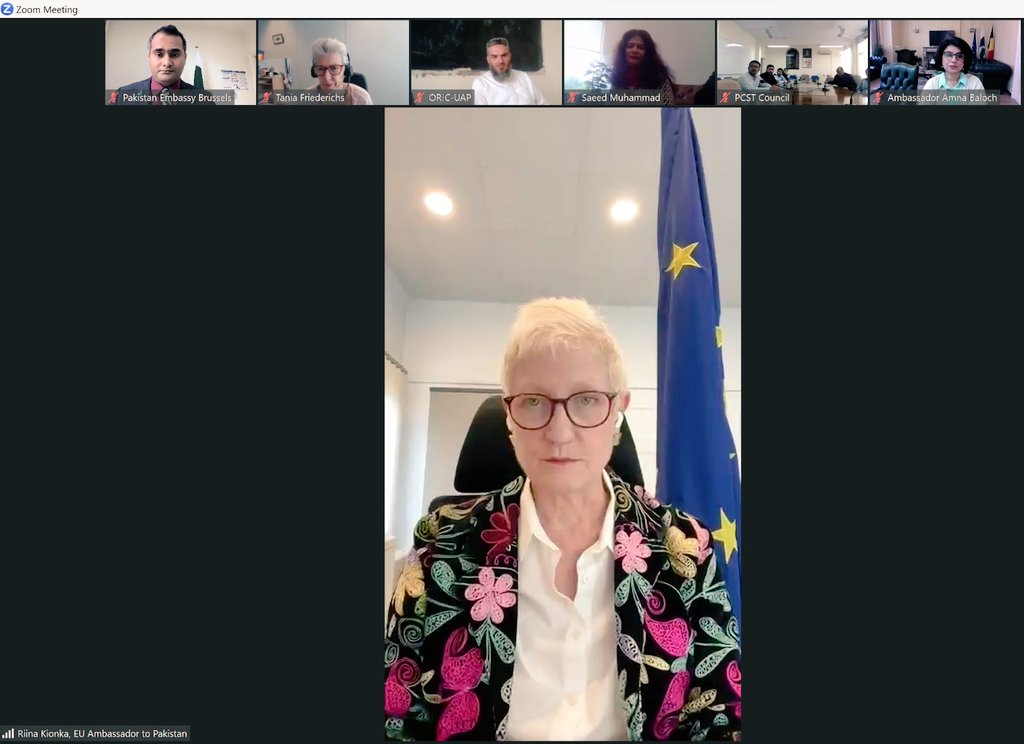As part of its science diplomacy initiative, the Embassy of Pakistan, Brussels in collaboration with the Directorate General of Research and Innovation of the EU Commission (DG RTD) organized an information session on Horizon Europe grant scheme today.

Speaking on the occasion, Ambassador of Pakistan, Amna Baloch and Ambassador Riina Kiona, EU Head of Delegation emphasized the need to foster research collaboration in order to address emerging global challenges and attain sustainable development goals. Head of Unit (Global Approach and International Cooperation in Asia) Nienke Buisman, in her opening remarks, shared the theme specific approach of Horizon Europe and the strategic focus of international cooperation.

Horizon Europe is the European Union’s flagship funding program for research and innovation. It has a substantial budget of €95.5 billion and aims to support various areas of research and innovation to address challenges such as climate change and contribute to achieving the United Nations’ Sustainable Development Goals. This program spans a seven-year period (2021-2027) and is a successor to the Horizon 2020 program.

During the information session, the audience was also briefed on modalities of participation from Pakistani entities in the Horizon Europe grant scheme by Senior Policy Officer Tania Friederichs. Subsequently, experts from the European Commission shared details regarding diverse grants calls in the themes of agriculture, circular economy including sustainable textiles and disaster management. Attendees were also informed on the scholar mobility options and funding available under the Marie Skłodowska-Curie Actions.

In his closing remarks, Additional Secretary (United Nations) Ambassador Syed Haider Shah highlighted the global need for leveraging science, technology and innovation for socio-economic development. He emphasized that such events would further enable deepening of research linkages between Pakistan and the EU.
The event was attended by policy and academic stakeholders in Pakistan as well as by scientific diaspora in the EU.


















































